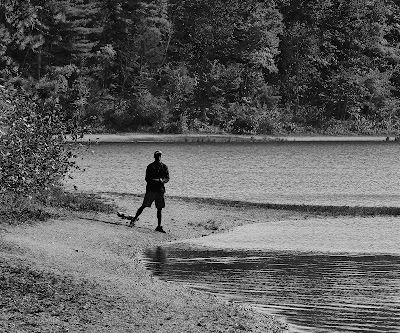Jer 23:1-6
Ps 23
Eph 2:13-18
Mk 6:30-34
The shepherd was crucial to life in the Ancient Near East. He cared for the flocks that supplied food and wool. He protected the sheep from wild animals and thieves and kept them from getting lost. The shepherd made certain that the flocks were safe at night and pastured during the day. It is no surprise then, that the shepherd became a symbol for those with authority over others. In the Ancient Near East the ideal king was protector, rescuer, and servant of the people. That ideal was not always met.
Being a shepherd was never easy. Being responsible for the care, protection and guidance of others is not easy. It never will be easy. A good shepherd is a leader but also a companion. A good shepherd is strong, decisive, and demanding when necessary but gentle and flexible when the situation calls for it. The shepherd keeps the sheep on the right path and seeks out the rebellious ones who stray and become lost. The shepherd loves and cares for the sheep and will lay down his life for them, even the ones who need to be dragged back to reality at times. Ask any parent.
A parent's vocation is that of shepherd: to guide and protect when necessary, and to keep the kiddos on the right path, while loving and caring for them at all times. The shepherd's responsibilities--and we are all shepherds at times-- are serious and at times burdensome. The responsibilities must never be ignored or perverted as is made plain in the opening verse from Jeremiah, "Woe to the shepherds who mislead and scatter the flock of my pasture, says the Lord."
Many of Israel’s kings, about whom Jeremiah was speaking, were unfaithful to their calling. They ignored their roles as shepherds and rebelled against God by failing to care for those entrusted to them. The same can be said for many politicians today. Many of those ancient shepherds had no concern for their flocks but only for themselves. They ignored the people they were to guide, allowing them to remain lost and bewildered. Things haven’t changed much.
Today, there are financial “shepherds” who take good care of themselves with no concern for those whom they serve. Be it Bernie Madoff and those of his ilk who destroy lives or the Little League president who embezzles funds, the sins are the same though the budgets are different.
Physicians who knowlingly prescribe ineffective treatments, perform unnecessary surgeries, administer useless therapies, and shill for questionable medications, are no better, as the FDA has recently demonstrated.
Too many news stories describe parents who leave very young children alone and unsupervised. Parents who ignore their responsibilities as they go out to drink, do drugs, gamble, or shop are beneath contempt.
Once we are responsible for the care of others no matter the mode of care, we carry the same responsibilities as the shepherds of the Ancient Near East, and face the same punishment Jeremiah described if we neglect those duties.
Psalm 23, 'The Lord is my shepherd,' is probably the most well-known and beloved of the 150 psalms that make up the Church's ancient prayer book. I will admit that there are times I cannot hear this psalm without memories of the black and white westerns I watched as a kid. No funeral in Dry Creek Gulch was officially ended until the preacher, wearing a black frock coat, intoned "The Lord is my shepherd . . . " while someone pounded a rough wooden cross into the mound of dirt over the grave while John Wayne stood off to the side, glowered, and caressed his gun.
The images in the psalm speak to our desires for peace, safety, rest, and our wish to be cared for. The images are comforting and consoling as they invoke the shepherd who gives the sheep rest, cool water, and protection in green pastures. It is not easy being that shepherd.
The gospel showed that the sheep can be demanding, wanting more than the shepherd can give. Despite Jesus' fatigue and the apostles' need for rest we heard his response to those who had gone to where they thought Jesus was headed, “When he saw the crowd, his heart was moved with pity for them, because they were like sheep without a shepherd; and he began to teach them . . . . .” Jesus' hunger and fatigue took a backseat to the needs of the sheep, to the needs of others. Food and rest would come later. Placing the needs of others before one's own is part of being a good shepherd in our own vocations, jobs, or occupations or when we are responsible for the care of others.
Jesus gives us the model of the Good Shepherd. Our choice is whether or not to accept or reject that model, whether to choose for or against His example, whether to follow or stray.
____________________________________________
Took a Chinese priest friend to Walden Pond two years ago, pre-covid. It was a great trip He surprised me when he explained that he had read the book as part of his English studies in China. Walden is only about 30 minutes away from BC. I don't go during the summer. Much too crowded with tourists. A Wednesday in October is a much better time. All of the photos below are from that visit. Fr. Peter is wearing a Penn State sweatshirt because he hadn't brought one of his own, it became quite cool, and, being my mother's son, I took an extra one just in case it got "chilly" (one of her favorite words).
A reproduction of Thoreau's cabin. It is about the size of a one car garage as long as that one car isn't an SUV.
+ Fr. Jack, SJ, MD









No comments:
Post a Comment